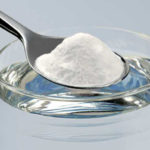Is it Advisable to Consume Animal Liver?
Apart from its role in producing bile for digestion and absorption of fats, synthesizing proteins, and storing glucose, the liver is also crucial for detoxification. Toxins do not accumulate in the liver but are instead processed by it, converted into non-toxic substances, and then eliminated from the body.

Liver is the organ with the highest protein content.
Additionally, vitamin A and iron are highly beneficial for children suffering from anemia and malnutrition. Hence, consuming liver is beneficial rather than harmful.
However, it is important to select the liver from healthy animals. Ideally, the liver should have a deep red color and a smooth surface, free from any bumps.
Upon purchasing, rinse the thinly sliced liver with cold water, and then use paper towels to absorb any remaining blood. This process ensures that any toxins present in the blood are removed, leaving only the nutrient-rich liver cells.
Who Should Refrain from Consuming Liver?
While organ meats, including liver, can be beneficial for some individuals, they may not suit everyone. Children, pregnant and lactating women, individuals with iron deficiency anemia, adolescents, and young adults can benefit from consuming organ meats like liver, but in moderation. It is recommended to consume liver 2-3 times a week, with portions of 50-70g for adults and 30-50g per meal for children.
Parasites such as liver flukes can also reside in the liver. Furthermore, in pigs infected with hepatitis, the liver may contain harmful viruses and toxins.
Therefore, when purchasing liver, opt for fresh liver with a resilient texture and a smooth surface. Avoid liver with a yellow or dark purple hue and an unpleasant odor. Ideally, source liver from inspected, healthy animals at regulated slaughterhouses.
It is important to ensure thorough cooking of the liver to eliminate bacteria and parasites. Avoid consuming rare or undercooked liver, and instead, cook it thoroughly over high heat.
For elderly individuals and those with obesity, it is advisable to consume liver in moderation. People with hyperlipidemia, hypertension, diabetes, gout, nephrotic syndrome, and heart failure should refrain from consuming liver.
Food Combinations to Avoid with Pork Liver
Pork Liver and Orange Juice Don’t Mix
Pork liver contains significant levels of copper. When combined with vitamin C, as found in orange juice, the vitamin C can become oxidized and lose its original function.

Important considerations when consuming pork liver
Avoid Pork Liver Stir-fried with Bean Sprouts
In general, animal liver, including pork liver, should not be cooked with vegetables or fruits rich in vitamin C, such as bean sprouts. Vitamin C is neutral and alkaline-unstable, while liver contains trace elements like copper and iron, which can oxidize and degrade vitamin C.
Don’t Mix Pork Liver with Raw Fish Salad
According to Eastern medicine, consuming raw fish salad with pork liver can lead to abdominal distension and indigestion. If this occurs, a hot licorice water solution can be used as a remedy.
Animal liver, including pork liver, should not be combined with vitamin C-rich vegetables, fruits, or other food items.
Pork liver should also not be paired with celery or carrots. The metal ions in pork liver can break down vitamin C, negating the benefits of carrots. Celery contains cellulose and oxalic acid, which can interfere with iron absorption when consumed with pork liver.
Avoid Combining Pork Liver with Curly Kale
Curly kale is rich in vitamin C, but when combined with pork liver, this vitamin can be broken down and rendered ineffective. Therefore, these two foods should not be mixed. Regularly combining these foods can lead to kidney stone formation and negatively impact your health.
How to Effectively Treat Fishbone Issues at Home
Everyone loves feasting on the deliciousness of fish during the holidays. But, unfortunately, choking on fish bones is an unavoidable issue that may lead to devastating consequences if left unattended for a prolonged period. Let’s see how Dien May Xanh can help us out when fish bones get stuck in our throat.
Uncovering the Benefits of Eye Massage: 3 Unexpected Effects
Do you want to know how to protect your eyes and eyesight with simple massage techniques? Recent research has revealed that daily eye massage can provide a number of unexpected benefits to those looking to maintain healthy eyes and vision. Keep reading to find out more about the effects of eye massage and some simple exercises!





































